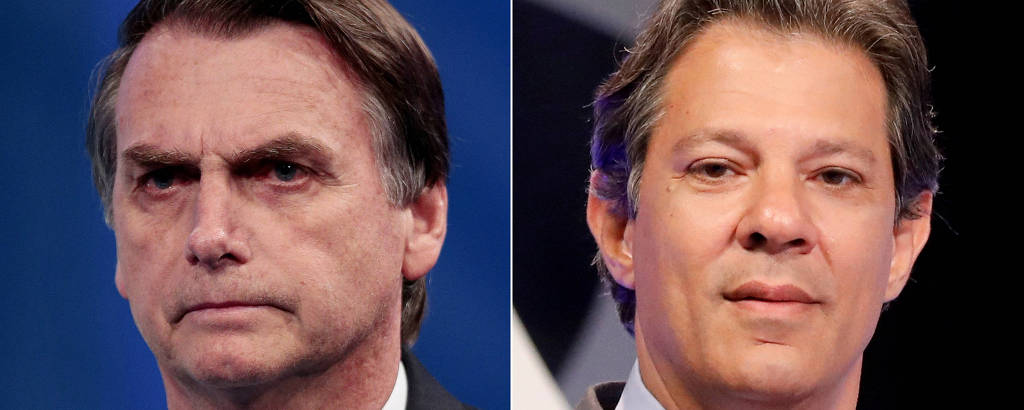Jair Bolsonaro (PSL) 63, and Fernando Haddad (PT), 55, will run against each other in the presidential election runoffs, in a campaign defined by a strong conservative wave. Bolsonaro, a former Army captain, got close to winning in the first round, but after the all the ballots were counted, he got 46% of votes against the second place Haddad, with 29%.
Bolsonaro placed first in four of Brazil's five regions, the only exception being the Northeast. He won in all states of the Southeast, South and Central West and performed well in the North, losing only in the state of Pará.
Fernando Haddad only made it to the runoff because of the support from Northeastern voters. As expected, he benefited from votes transferred from former president Lula, who was initially PT's candidate.
Bolsonaro's allies also made headways in states like São Paulo, Minas Gerais, Rio de Janeiro, and Santa Catarina. His party, PSL, will be well represented in the Federal Lower House and State Assemblies.
Eduardo Bolsonaro (SP), the candidate's son, became the most voted Lower House Representative in Brazilian history, with over 1.8 million votes.
Bolsonaro won in over 98% of townships that, in the last elections, favored candidates from PSDB, sealing his new position of the main exponent of the anti Worker's Party camp.
There were also substantial changes in the Senate, with many political sacred cows losing their seats. Among the losers were former president Dilma Rousseff (PT-MG), former governors Beto Richa (PSDB-PR) and Marconi Perillo (PSDB-GO), and current senators Eunício Oliveira (PMDB-CE) and Roberto Requião (PMDB-PR).
São Paulo will also have a runoff for state governor between former capital mayor João Doria (PSDB) and current governor Márcio França (PSB), who beat candidate Paulo Skaf (MDB) by a hair.
Among São Paulo candidates for a Senate seat, Major Olímpio (PSL) - another Bolsonaro ally - and Mara Gabrilli (PSDB) were elected, knocking off Eduardo Suplicy (PT), whom the polls showed as first place.
States like Bahia, Alagoas, Ceará, Paraíba, Paraná, Goiás, and Espírito Santo all elected their governors in the first round. There will be runoffs in Rio de Janeiro, Minas Gerais, and Rio Grande do Sul, among others.
Election Day also featured issues in cities that started using biometric identity controls, which caused long queues of voters waiting to cast their ballots. There were also rumors of fraud in the electronic voting machines, fueled by fake news distributed on social media. The president of the Superior Electoral Court, Justice Rosa Weber, said the court "was still learning how to deal with all the fake news."
Translated by NATASHA MADOV
Read the article in the original language
